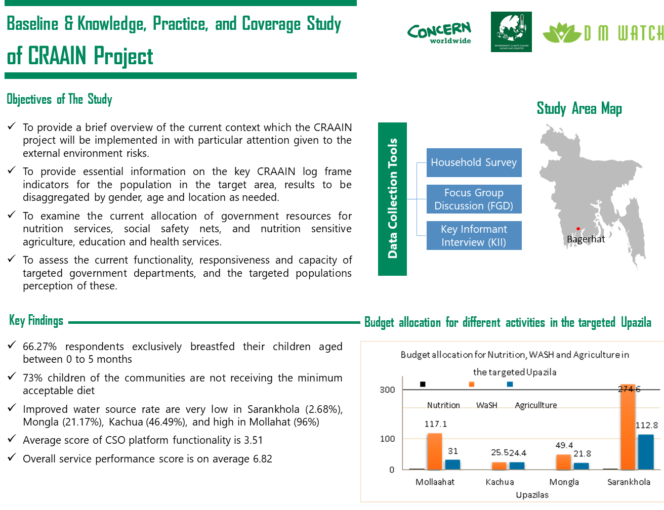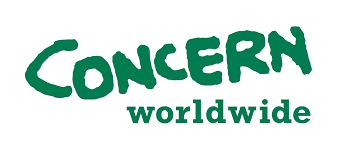

Baseline and Knowledge, practice and Coverage Study on Collective Responsibility, Action and Accountability for Improved Nutrition (CRAAIN) Consortium.

The study period of this assignment was November 2020 to February 2021. The overall objective of this study was to collect the baseline information outlined in the agreed log frame, and to assess the current Knowledge, Practice, and Coverage (KPC) among mothers/caretakers of children, household heads, School Management Committee members and adolescent girls’ and boys’ groups in four Upazilas of Bagerhat, namely, Mongla, Sharonkhola, Kachua, and Mollahat. Both qualitative and quantitative methods were applied to collect data from the target population. Primary quantitative data were collected through a household survey (n=500 beneficiaries) using Digital Data Gathering (DDG) tool and the primary qualitative data were collected through Focus Group Discussions (FGDs) with local people and beneficiaries of the CRAAIN project and Key Informant Interviews (KII) with different stakeholders. Purposive sampling techniques were used to select the KII and FGD participants. The major findings for the baseline report of this study includes, 53% of the respondent’s income source is agriculture, 85% of the respondents know the correct COVID-19 transmission pattern, 66.27% respondents exclusively breastfed their child, 27 % of the respondents’ children achieved minimum acceptable diet, 2.4% of the respondents knew all the five critical moments of hand washing and 36% of the respondents use improved and reliable drinking water source all the year- round. The key findings of KPC report includes, 19.05 % women (respondents) have adequate knowledge on care practice, 19.74 % had four or more ANC visits, 60.09 % mothers had PNC visits, 59.23 % mothers performed early initiation of breast feeding, 86.72 % women had improved MHM practice and 77.84 % mentioned using soap while washing hand. In the end DM WACTH team recommended to include long-term duration of such nutrition-based projects, engaging more local people, making sense of ownership among the people so that the project outcomes become sustainable.
© 2023 DM WATCH LIMITED. All Rights Reserved
